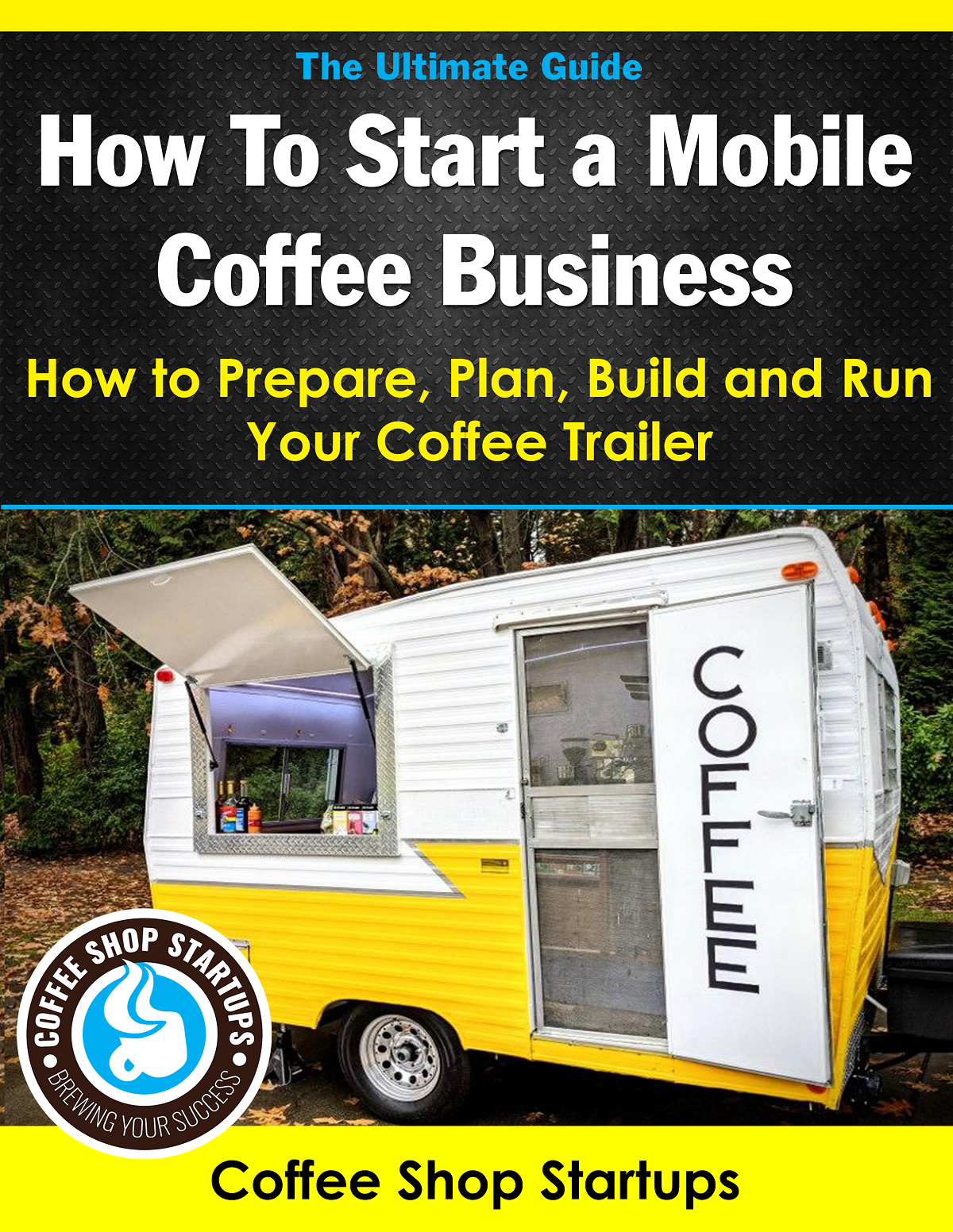How to Start a Coffee Truck Business:
Picture yourself serving coffee at your favorite festival or musical concert. Making good money as you live a life of independence and financial freedom is a real possibility when you start a coffee truck.
I love the idea of starting a coffee truck business. No doubt, it can be an exhilarating adventure – combining the love of coffee with the freedom of mobility and the possibility of making money independently.
Many baristas go from serving espresso and Americanos to managing successful coffee businesses. Starting a mobile coffee business is certainly an affordable way to dive into the retail coffee business as a business owner. The cost of starting a coffee shop can be a challenge, but starting a coffee truck can offer a lower cost barrier that makes ownership more accessible.
There are over 52,150 food trucks in the United States. Many of them serve coffee or espresso based drinks. The data is staggering. The growth of food trucks is 18% per year for the last five years. This indicates that there are many coffee trucks and trailers also getting started.
So, I'd like to offer my two cents on how to get started with your coffee truck.
If you a barista interested in starting a coffee business, I hope to help you navigate through the key steps to starting a coffee truck, from conceptualizing your mobile coffee business to serving that first cup of freshly brewed joy.
So let's get started.
Steps to Start a Coffee Truck
1. Develop a Mobile Coffee Shop Concept
2. Create a Solid Mobile Coffee Business Plan
3. Research Your Target Market
4. Choose the Right Coffee Truck
5. Obtaining the Necessary Permits and Licenses
6. Get Your Coffee Truck Equipment
7. Create a Menu
8. Get a Commissary
9. Design a Memorable Coffee Truck Brand
10. Build an Online Presence
11. Setup a Point of Sale System
12. Consider Sustainability Practices
13. Market your Mobile Coffee Business
14. Get Barista Training
Start a Coffee Truck Business
Step 1: Develop Your Mobile Coffee Concept:
Before you spend any real money on your coffee truck business, first define your unique selling proposition (USP). That is, what will make your coffee truck business special or different? What will set your coffee truck apart? It could be a signature blend, innovative brewing techniques, or a commitment to sustainability.
Developing your coffee truck concept is the trailhead of your mobile coffee business journey. Whether you start a coffee trailer or a coffee truck, begin by defining what makes your venture unique and appealing to your target audience.
Consider the type of experience and mobile coffee menu you want your customers to have, whether it's savoring specialty blends, enjoying a cozy ambiance, or relishing a quick and convenient coffee fix on the go.
Your concept should embody your passion for coffee and reflect your mobile coffee brand's personality. Think about the story you want to tell through your coffee offerings, from signature drinks to the ambiance inside your mobile coffee shop.
- Define what makes your coffee truck special
- Develop a menu your coffee customers want
- Deliver an excellent coffee
By zeroing in on a distinct concept and menu, you not only set the stage for a memorable customer experience but also create a strong foundation for the success of your coffee truck business startup.
From Barista to Coffee Truck Owner:
How to Start a Coffee Truck Business
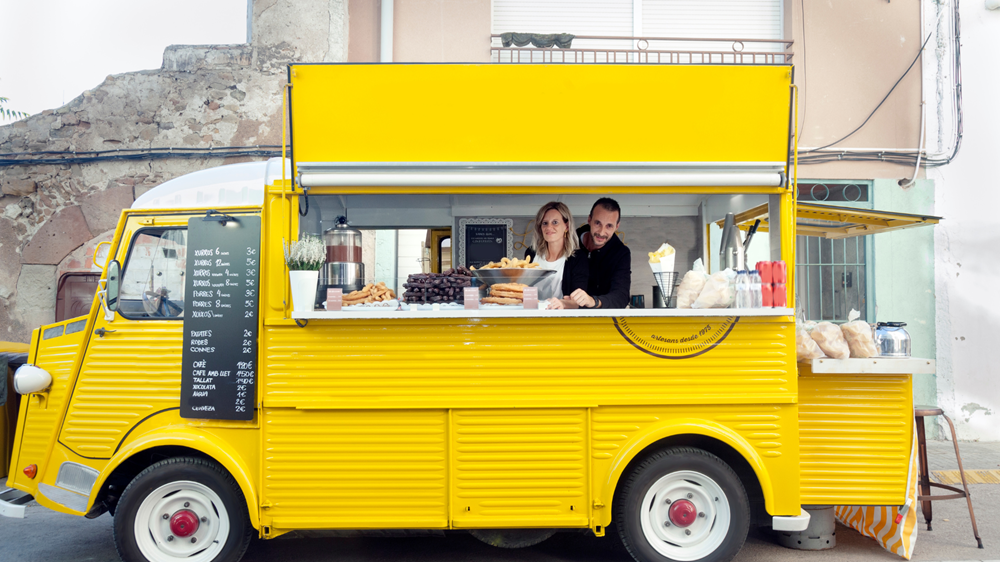
Step 2: Create a Solid Mobile Coffee Business Plan:
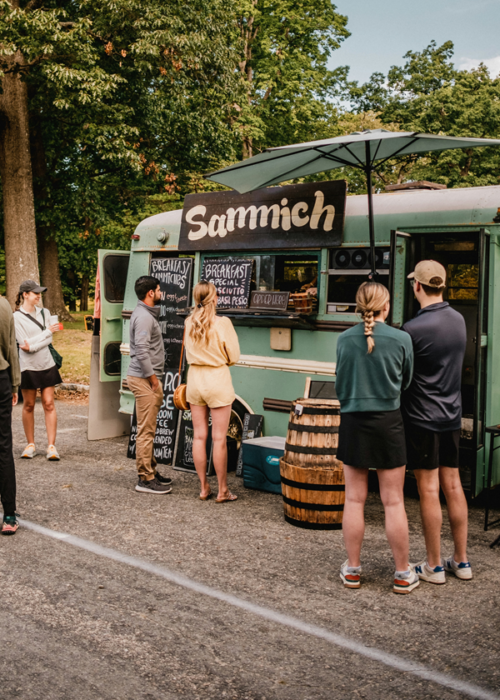 To save money and ensure that you're on track, you will need to outline your business goals, target market, and financial projections. A well-thought-out mobile coffee truck business plan will serve as your roadmap and attract potential investors or lenders.
To save money and ensure that you're on track, you will need to outline your business goals, target market, and financial projections. A well-thought-out mobile coffee truck business plan will serve as your roadmap and attract potential investors or lenders.
Creating a solid mobile coffee truck business plan is the critical first step in launching a successful coffee truck venture. This roadmap not only serves as your guide but also communicates your vision to potential coffee-loving investors and partners.
Start by outlining your mobile coffee business goals, identifying your target market and potential customers, and conducting a thorough analysis of the competitive landscape. Specify your menu offerings, pricing strategy, and the unique aspects of your coffee truck concept.
- Identify your goals
- Know your target market
- Understand your budget
- Put it in a plan
Additionally, it includes financial projections detailing startup costs, operational expenses, and revenue forecasts. A well-crafted coffee shop business plan provides clarity on how your mobile coffee business will operate, grow, and ultimately thrive in the competitive market. It serves as the foundation upon which you can build a sustainable and flourishing coffee truck enterprise.
Taking Time to Research
If you have never operated a coffee truck before, it is strongly recommended that you take some time to research your options. What will it take to build, open, and operate a coffee truck – or you might consider setting up a coffee trailer, which comes with its own set of unique challenges? Researching how to start a coffee truck can have a lasting impact because you may decide that the coffee business concept isn't the right fit altogether. Research will help you save money as you better understand where and when to spend your money.
How to Start a Coffee Truck Smart
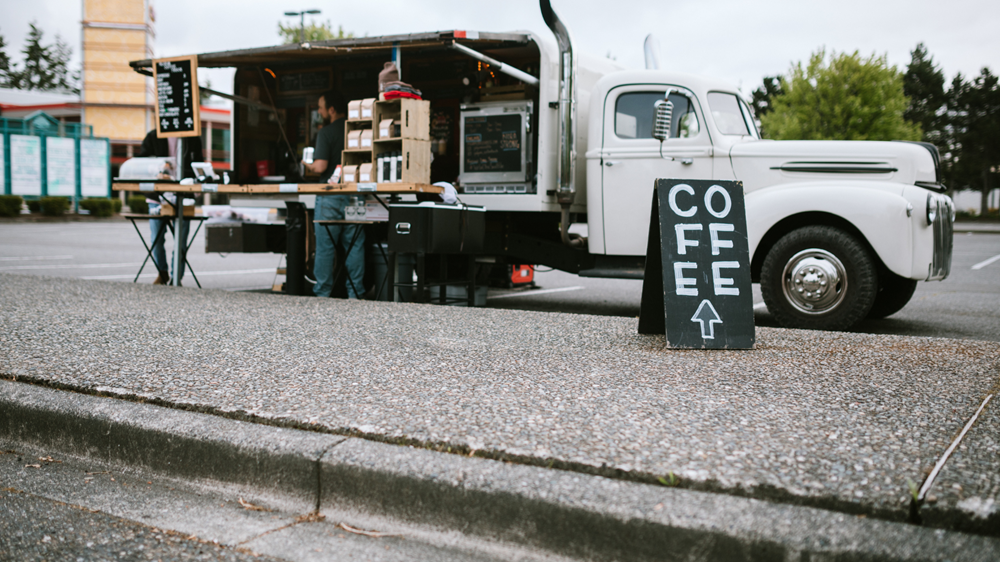
Step 3: Research Your Target Market:
Starting a coffee truck successfully means catering to your coffee customers. Understand your potential customers and their preferences. To maximize your reach, consider demographics, locations with high foot traffic, and local events. Get to know your target customer.
Thoroughly researching your target market is a pivotal step in the success of your coffee truck business. These will be among your loyal following and ensure your financial success. Understanding the caffeine-rich demographics, preferences, and behaviors of your potential coffee-drinking customers allows you to tailor your coffee offerings to meet their specific needs – bringing in repeat business and increased sales!
For starters, you will want to identify locations with high foot traffic or popular events where your target audience congregates. Engage in conversations with locals to gain insights into their coffee preferences and expectations. By doing so, you can strategically position your coffee truck in areas where demand is high, maximizing your reach and impact.
- Realize that every location may be different
- Prioritize access to more potential customers
- Be aware of ballooning costs
Your mobile coffee menu development will begin with determining your coffee customers. Then, you'll focus on your equipment, needed space, and the size of the coffee trailer or truck that you will need.
This market research not only helps you refine your menu and pricing strategy but also establishes a strong connection with your customers, setting the stage for a thriving mobile coffee business.
Step 4: Choose the Right Coffee Truck:
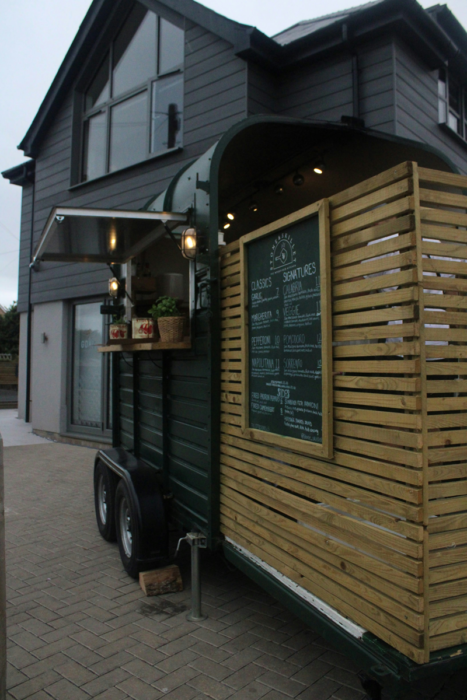 Selecting the right truck or coffee trailer for your business is crucial. Consider factors such as size, mobility, and customization options. Ensure your coffee truck or trailer complies with health and safety regulations for food service.
Selecting the right truck or coffee trailer for your business is crucial. Consider factors such as size, mobility, and customization options. Ensure your coffee truck or trailer complies with health and safety regulations for food service.
selecting the right coffee truck or trailer might be one of the hardest things about starting a coffee truck.
Your mobile coffee truck should not only meet your current operational needs but also allow for potential expansions or modifications as your coffee business grows.
Whether opting for a compact and agile model or a larger, more spacious option, the right coffee truck or trailer becomes the canvas upon which you develop your unique coffee offerings to your customers.
- Consider your budget
- Your need for space
- Ability to pass inspection
Careful consideration of these mobile success factors ensures that your mobile coffee truck not only stands out on the streets but also accommodates the practical requirements essential for delivering exceptional coffee to your customers. In fact, you might also consider starting a coffee trailer too.
Will You Build, Refurbish, or Buy a New Coffee Truck?
The answer to this question will have lasting financial ramifications and impact your timing too. Building your own trailer may be a necessity if you're not finding the right used and new options in your price range. Yet, building your coffee truck or trailer will likely push back your start date. Even new coffee trucks may need slight to major modifications to fit your local health and safety codes and permitting requirements. As you continue to research and understand your options and existing opportunities, you might change your mind and opt for a different concept than what you first started with.
Be open. Be flexible. And be prepared!
How to Start a Coffee Truck Business
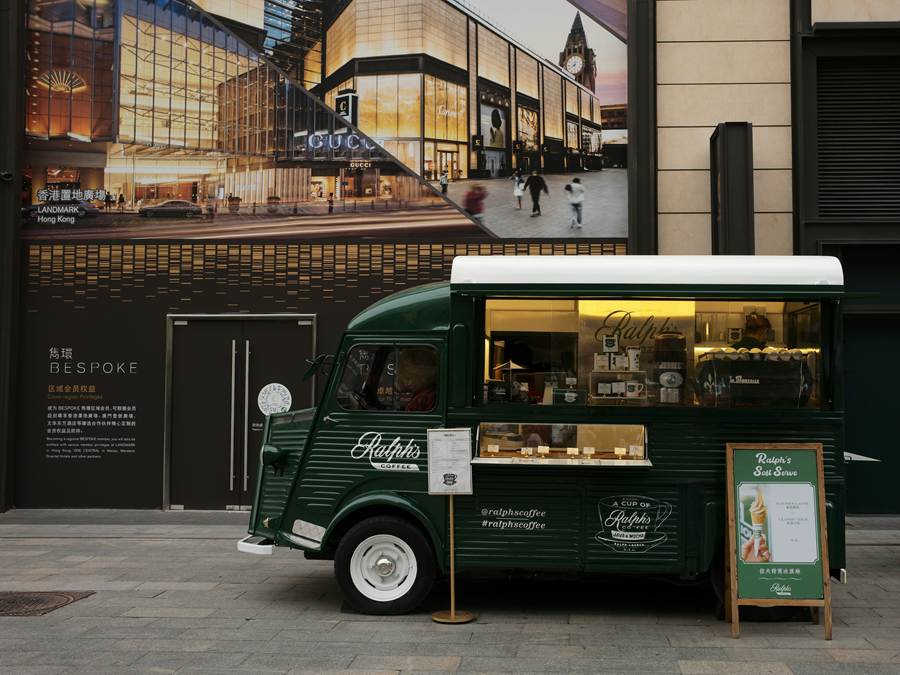
Coffee Truck Requirements and Legal Stuff
Step 5: Obtaining the Necessary Permits and Licenses:
Some people think that starting a coffee truck will help them avoid the permits and regulatory issues that coffee shop startups have to deal with. In fact, the positive is true. Mobile coffee businesses are just as regulated in the United States and Canada.
- Buildings permits
- Health permits
- Fire department permit (as needed)
- Local and state business licenses
- Reseller's license
To navigate the regulatory landscape by securing the required permits and licenses, you'll have to read up and learn what is expected of you before you serve your first coffee. This includes health permits, the building department, food-handling certifications, and any specific permits for mobile food businesses in your area.
Local Health Permits:
One of the first permits to secure is a health permit. This document is issued by local health departments and ensures that your mobile coffee business complies with health and safety regulations. It typically involves inspections of your truck's kitchen and food handling practices.
Building Permit
Yes, even though your truck is not a building, you still need a buildings permit (in many jurisdictions)!
Your coffee truck or trailer will need to pass inspection from a buildings department (or equivalent) agency. Your buildings department usually is the agency to ensure that everything in your coffee truck is installed correctly. You should find out, which agency is responsible for this type of permitting and learn about their buildout requirements.
Local and State Business License:
Obtain a business license from the city or county where you plan to operate. This license legitimizes your coffee truck as a legal entity and ensures that you comply with local business regulations. Check with the local government offices to understand specific requirements for your area.
Food Handler's Permit:
Of course, as a barista, you will already have barista experience. If you or your staff will be directly handling food and beverages, obtaining a food handler's permit is essential. This permit demonstrates that individuals serving food on your coffee truck have undergone the necessary training on safe food handling practices. As a barista, you'll likely have one of these already.
Mobile Vendor License:
Some local jurisdictions require a specific mobile vendor license for businesses operating on wheels. This license often addresses the unique aspects of mobile businesses and ensures compliance with local regulations related to street vending.
Parking Permits:
You may need parking permits or approvals to operate legally, depending on your chosen location. Explore regulations related to street parking and designated vendor areas to avoid fines or towing.
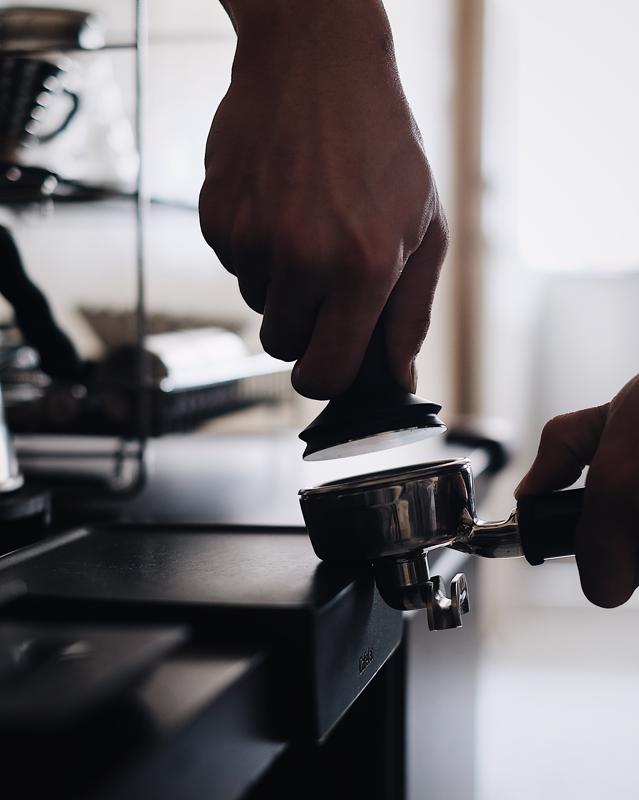 Fire Department Permits:
Fire Department Permits:
To ensure the safety of your mobile coffee operation, consult with the local fire department to obtain the necessary permits. This may include approvals for the use of propane or other heating elements on your coffee truck.
Coffee Truck Vehicle Permits:
Ensure that your coffee truck is properly registered and meets the vehicle requirements outlined by local transportation authorities. This may involve inspections to verify that your truck complies with safety and emission standards.
Step 6: Get Your Coffee Truck Equipment
Your coffee truck's success hinges on the quality of your coffee equipment. Invest in reliable commercia-grade coffee-making tools, refrigeration, and storage to ensure efficient operations on the go. You might need an espresso machine, coffee grinders, brewers, and a refrigerator. You may also have blenders or ice cream machines in your coffee truck.
- Know your electrical power needs
- Consider how you will mount your coffee equipment
- Consider space requirement
- Choose only commercial-grade coffee equipment
Step 7: Create an Appealing Coffee Truck Menu:
As stated earlier, your menu determines everything – from the type of unit you select to your mobile coffee business budget. As a barista at a local coffee shop, you likely probably already know that barista training is essential. Therefore, you'll want to take your time to craft a menu that showcases your specialty drinks and caters to your target audience. Consider offering a variety of options, including different coffee blends, teas, and perhaps a signature treat.
When crafting a menu for your coffee truck, focus on offering a diverse selection that caters to different tastes and preferences. Begin with a solid foundation of high-quality coffee, including various roast options and brewing methods.
Consider including popular classics like espresso, cappuccino, and lattes, but also experiment with unique and signature drinks to set your truck apart.
- Expected core menu
- Signature drinks
- Additional menu choices with high margins
Don't forget about non-coffee options such as teas, hot chocolate, and cold brew for customers who may not be coffee enthusiasts. Keep your menu concise to ensure quick and efficient service, but ensure there's enough variety to appeal to a broad audience. Consider adding seasonal specials to keep things fresh and exciting. Lastly, prioritize the use of fresh, locally sourced ingredients to enhance the overall quality of your coffee offerings and build a loyal customer base.
Step 8: Mobile Coffee Truck – Commissary Agreement:
In some areas, mobile food businesses are required to have a commissary agreement. This involves an agreement with a commercial kitchen or facility where you can store, prepare, and clean your mobile unit. You may not be able to open or operate your mobile coffee truck without a commercial commissary equipment. Be sure to check with your local health department.
- Shop around for a commercial commissary
- Compare prices
- Compare amenities
- Look for health department violations
Step 9: Design a Memorable Coffee Truck Brand:
Your truck's design is your first impression. Create a memorable and visually appealing brand that reflects your coffee truck's personality. Consistent branding helps build recognition and winning coffee brand.
Step 10: Build an Online Presence:
Every mobile business needs an online presence. Establish a strong online presence for your coffee truck through social media platforms and a caffeine-powered mobile coffee website your customers can use. Engage with your audience, share behind-the-scenes glimpses, and use online platforms for promotions.

Step 11: Set Up a Point-of-Sale System:
Having a good POS system will be important for your mobile coffee business. With a good Coffee Truck POS system, you can streamline transactions and collect a lot of good data. This data will help you make decisions on inventory, marketing, and your customers.
- Look at initial fees
- On-going setup costs
- Transaction fees
- POS equipment costs
When you pick your POS system for your mobile coffee business, you will want to ensure it's user-friendly for both your staff and customers, and consider mobile payment options for convenience.
Step 12: Consider Sustainability Practices:
Embrace sustainability by using eco-friendly packaging, implementing recycling practices, and sourcing ethically produced coffee beans. Consumers increasingly value businesses with a commitment to environmental responsibility. As a barista, thinking ecologically, reducing waste, and saving money is one of the things baristas do for their coffee shops.
Step 13: Market Your Mobile Coffee Business:
Your coffee truck success will be impacted by your social media efforts. Develop a marketing strategy to build anticipation before your launch and to attract customers afterward. Utilize social media, local events, and partnerships to promote your mobile coffee business.
How to Start a coffee Truck
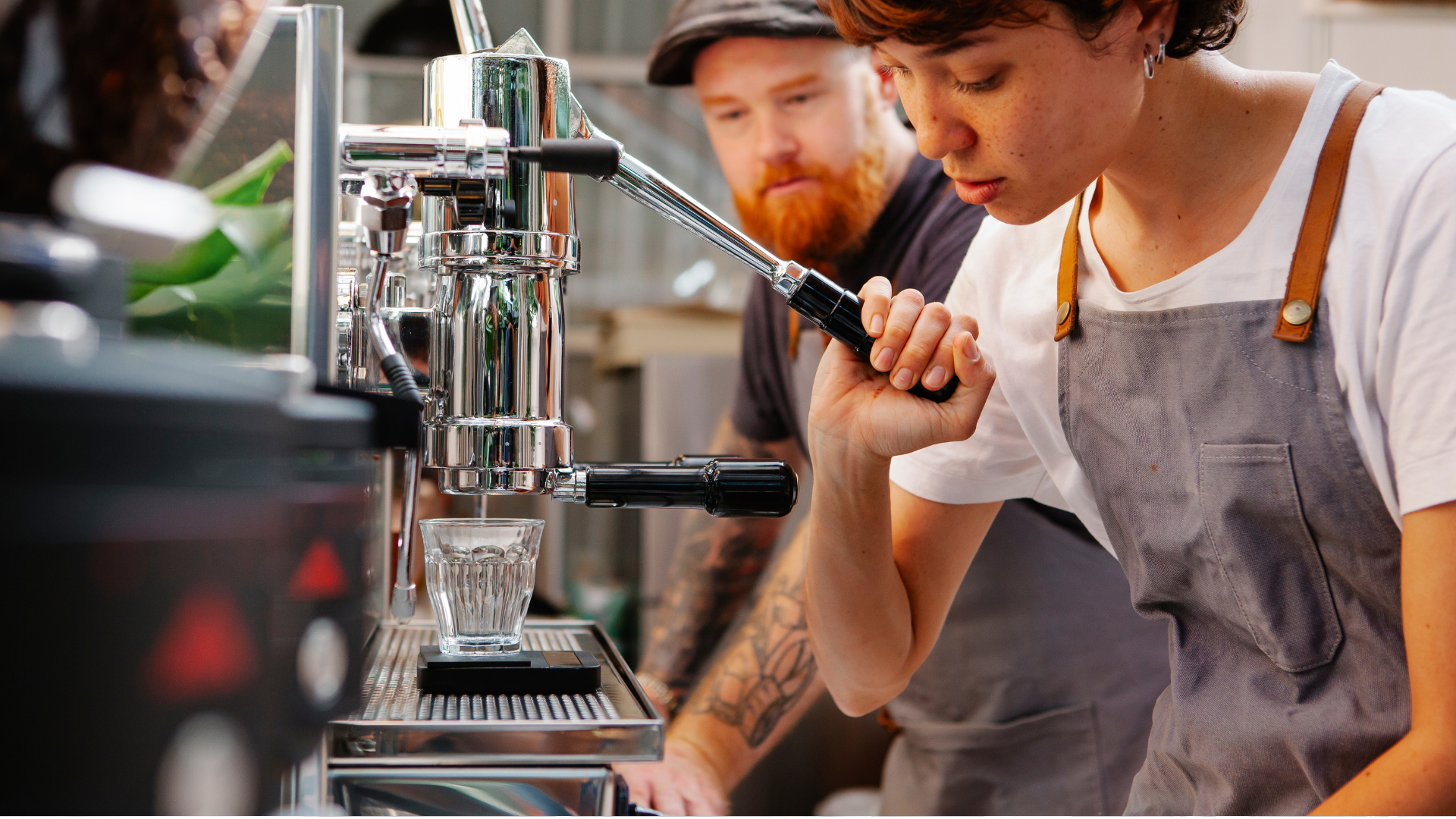
Step 14: Get Barista Training
If you are not a barista, you'll want to get barista training before you start your coffee truck business. The importance of barista training for coffee trucks cannot be overstated in the competitive world of mobile coffee. Baristas serve as the frontline ambassadors of your brand, turning each cup into an experience.
Proper barista training equips them with the skills to master the art of coffee-making, ensuring consistency and quality with every brew. From perfecting espresso extractions to creating intricate latte art, barista training elevates the overall customer experience.
A well-trained barista not only understands the nuances of different coffee blends but also excels in customer engagement, enhancing the reputation and success of your mobile coffee business. Investing in comprehensive barista training is not just about crafting exceptional coffee; it's about creating a memorable and delightful encounter for every customer served from your coffee truck.
How to Start a Coffee Truck
Coffee Truck Costs
Starting a coffee truck is less expensive to start and manage than a traditional coffee shop business. For example, it's not unheard of for a coffee shop business owner to spend over $100,000 – $200,000 to remodel the space. And monthly rental (lease) expenses can be $3,000 to $10,000 a month is not uncommon in the United States.
On the other hand, a coffee truck can cost $25,000 to $60,000. It can operate at a fraction of the monthly cost. So, coffee trucks, while requiring an investment, can deliver on that investment with a lower startup barrier.
Conclusion:
Starting a coffee truck business offers a unique opportunity to bring the joy of coffee directly to your community. If you are thinking how much money a barista makes, you might also enjoy thinking about the benefits of starting a mobile coffee business.
By combining a passion for coffee with careful planning and execution, your mobile coffee venture has the potential to thrive on the open road. Remember, the key ingredients are dedication, a love for quality coffee, and a strong commitment to creating a memorable experience for your customers. Cheers to your journey in the world of mobile coffee entrepreneurship!
Related Questions:
What are the Biggest Coffee Truck Cost Factors?
Coffee trucks come in all shapes and sizes. Big, small, long, and everything in between. The most significant factor in coffee truck costs is whether it is a new or used one. Newer and even custom-made trucks can significantly add to the costs. Instead, used and worn coffee trucks run you significantly less like other vehicles. But with that cost reduction comes trade-offs, such as the need for significantly more repairs.
The most significant cost is likely the buildout required for it to start serving coffee. Your coffee truck buildout will include having it up to code and meet local standards to pass inspection. This may require commercial equipment to be installed properly. Therefore, this would include labor costs, equipment costs, and electrical and plumbing installation.
You'll have ongoing costs once you pass inspection and pay for your coffee truck permit, licenses, and business registration fees. This operational cost will include your labor (baristas), inventory (coffee and milk), supplies (cups, napkins), menu items, and possibly rent.
